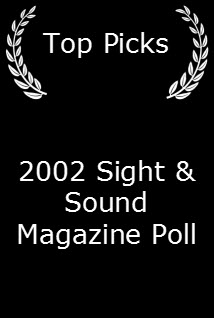Fantastic voyage into fantasy (1976)


Content by Tony Macklin. Originally published on April 26, 1976 @ The Journal Herald.
Use of images, imagination stunning in The Man Who Fell to Earth
The Man Who Fell to Earth, at the Dabel, is the most beautiful, jagged, freakish film of the year. Startling and displacing, it is also tender and mournful.
Like 2001, once one has the key, it is not a difficult film to understand, though at first it may seem so. The key is that The Man Who Fell to Earth is about an individual who is alien, distinctly separate from the society in which he finds himself. Once one recognizes the individual's isolation and differentness, he can handle the film.
The are several varying interpretations that one can wrest from the elliptical events. Perhaps Thomas Jerome Newton (David Bowie) is an extraterrestrial being who has come the Earth in an attempt to find a way to save his wife and children who are still on their arid, dying planet. Perhaps, as in the novel, he wants to help the human race.
Since he has suprahuman knowledge, he is able to establish nine new basic patents, for discoveries such as self-developing film, and he builds a corporation, trying to accomplish his mission.
He enlists a patents lawyer Oliver Farnsworth (Buck Henry) to head his corporation. He meets a loyal but not very bright woman Mary Lou (Candy Clark) who serves as his mistress and helpmate, and he employs a scientist (Rip Torn) to work for him.
But the Earth's humanity it too mundane for T.J. Newton, and it dulls his spirit and blinds his dreams.
The above interpretation is the easiest and perhaps the most likely. It is in accord with the remarkable novel by Walter Tevis from which the film was adapted. The Tevis novel, also titled The Man Who Fell to Earth, is the best science fiction work I have ever read.
Like Arthur C. Clarke's novel 2001, Tevis' novel helps one to understand the movie. It is fascinating to compare the Tevis novel with the film directed by Nicolas Roeg and scripted by Paul Mayersberg. They are vastly different, and yet it is surprising how many of the lines and situations appear in both.
The fall of Icarus is a central metaphor of both the book and the film. Like Icarus, Newton's plunge is monumental, but it is essentially misunderstood or unknown. It is amazing waste. Both the book and the film have several tantalizing Howard Hughes parallels.
But Roeg's film differs vividly from the book. The film is more extreme, not linear or coherent like the book, and has explicit sex, where the book has no sex. Roeg experiments so that the story is told in pieces; time is not clear, and the plot is oblique. The film is an incoherent fantasy.
Another great difference is that Roeg's film uses much more absurdity. A ping-pong scene reminiscent of the ping-pong scene in the film Lolita is outrageously absurd. Tevis doesn't rely on outrageous absurdity. And, his treatment of how the human beings deal to the alien is enough to bring tears to the eyes, because it is all too real, all too inevitable.
Director Nicolas Roeg has always let style overcome content. In Walkabout, Performance, and Don't Look Now, style ruled, and content suffered. But in The Man Who Fell to Earth Roeg has allowed enough room for content to reverberate through many fascinating possibilities. This time his obsession with imagery has not stifled thought.
The above interpretation of an extraterrestrial's coming to Earth is certainly valid. But the film offers other possible interpretations. Perhaps The Man Who Fell to Earth is a dream by a Howard Hughes type of figure who has been sealed off from the empire he once started.
Hughes, like Newton, was an electronics genius, a famous success, and was perhaps overcome by the hugeness of the corporation and the growth of aviation which he helped inspire. Newton's mistress may remind one of Hughes' former wife, Jean Peters.
Like Hughes, Newton is a television addict, and he leans forward raptly to watch the programs on the multiple screens he has set up. We hear he is considered a fraud by some. And we witness his reclusion.
Or, The Man Who Fell to Earth may be the gaudy hallucinations of a rock star. A fourth possibility is that the film is a metaphor for the artist, a poet like W.H. Auden or a painter like Pieter Breughel, and his perceptions and worldly curses. Each of these interpretations has some intriguing validity.
In any case, the images that Roeg has created are stunning. Several are hauntingly beautiful such as an apocalyptic white horse galloping along to the strains of the song Try to Remember. Or after Auden's poem Musee des Beaux Arts, about Breughel's painting Icarus which shows an ill-fated, mythic boy drowning unheeded, there is a shot of Bowie with Breughel rich yellow coloring. Or the shots of the vistas of the Southwest which are like those of a foreign planet, eerie and lovely.
Roeg and writer Paul Mayersberg distance us and change our impressions abruptly and daringly. In one scene we see otherworldly sex between Newton and his wife, and it is like no sex we have ever seen -- liquid and strange.
And, in one of the most pathetic and yet human scenes, we see the mortal mistress of the alien being trying to have sex with her lover, who is unmasked and slimy. She wants to be strong enough to love this creature who has changed before her eyes, but despite her great effort, she finally recoils in horror. Her love is not strong enough.
Roeg has always been drawn to images of water and fragments of glass. In The Man Who Fell to Earth, this imagery reaches its greatest realization. Water shimmers, and Newton, to whom it is something precious, drinks it lovingly as it spills down his chin.
Glass is everywhere. Mirrors abound. A window is shattered. Chandeliers dangle their glittering glass pieces. A glass of ice cubes looks like it is full of jewels. Another motif is eyes. Newton's lawyer wears thick glasses. Everyone hides his eyes behind glasses. Newton's eyes become hopelessly Earth-bound.
David Bowie is striking as Newton, the alien. The British rock star is perfectly cast; he brings haunting egotism, charisma, and pallid exquisite presence to his role.
Candy Clark is effective as Mary Lou, Newton's blowsy mistress. Mary Lou, like Newton, is not what she seems. She is a creature of false fingernails, wigs, and heavy make-up. Rip Torn is the dissipated electronics expert who joins the corporation. Buck Henry is both bewildered and calculating as the patents attorney.
The Man Who Fell to Earth is teeming with images and ideas, a bombardment of eclecticism. We see human culture -- Breughel to Nick Adams, Billy Budd to Elvis Presley, trains to spaceships, the western frontier to modern wastelands. At times the film is almost too pretentious and chaotic.
If you are turned off by explicit sex, bizarre characters, and elliptic events, if puzzles thwart you, The Man Who Fell to Earth may very well frustrate and anger you.
But if you want to go into another world in which imagination leads you into recesses and crevices you haven't visited, The Man Who Fell to Earth is a fantastic guide.











